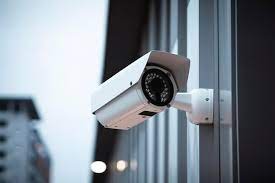
In today’s interconnected world, surveillance camera installers have become ubiquitous, playing a crucial role in safeguarding both public and private spaces. From enhancing public safety to deterring crime, these devices have evolved significantly over the years, leveraging advanced technology to provide unparalleled surveillance capabilities. This article explores the evolution, benefits, concerns, and future trends of security cameras in contemporary society.
Evolution of Security Cameras
The concept of surveillance dates back centuries, but the modern security camera has its roots in the mid-20th century. Early models were bulky, analog devices with limited recording capabilities. However, rapid advancements in technology, particularly in digital imaging and networking, revolutionized the industry.
Today’s security cameras are typically digital, offering high-definition video quality, remote monitoring capabilities, and advanced features like motion detection, facial recognition, and night vision. They can be integrated with other security systems, such as alarms and access controls, creating comprehensive security solutions for various environments.
Benefits of Security Cameras
The primary benefit of security cameras lies in their ability to deter crime and provide evidence in case of incidents. Visible cameras act as a powerful deterrent, discouraging potential criminals from targeting a location. In the event of a crime, recorded footage can be invaluable for identifying perpetrators and serving as evidence in legal proceedings.
Moreover, security cameras enhance public safety in areas such as public transportation, retail stores, educational institutions, and residential neighborhoods. They help monitor traffic flow, prevent vandalism, monitor crowds during events, and ensure compliance with safety protocols.
Concerns and Ethical Considerations
Despite their benefits, security cameras raise valid concerns regarding privacy and ethical implications. The widespread deployment of cameras in public spaces and workplaces has sparked debates about the balance between security and individual privacy rights. Issues such as unauthorized surveillance, data breaches, and misuse of footage highlight the importance of stringent regulations and ethical guidelines governing their use.
Additionally, there are concerns about the potential for surveillance technology to be misused for purposes such as social control or discrimination. Addressing these concerns requires careful consideration of legal frameworks, technological safeguards, and public discourse.
Future Trends
Looking ahead, the future of security cameras is poised for continued innovation. Advancements in artificial intelligence (AI) are driving the development of smarter cameras capable of real-time analytics and predictive capabilities. AI-powered cameras can differentiate between ordinary activities and suspicious behavior, improving response times and reducing false alarms.
Furthermore, the integration of Internet of Things (IoT) technology allows cameras to be part of interconnected smart systems, enabling seamless automation and enhanced situational awareness. This trend towards interconnected security ecosystems will likely lead to more sophisticated and efficient solutions for protecting people and property.
In conclusion, security cameras have evolved into indispensable tools for maintaining safety and security in our increasingly complex world. While their deployment raises important ethical and privacy considerations, responsible use and technological advancements promise to further enhance their effectiveness and mitigate concerns. As society continues to evolve, so too will the role of security cameras in safeguarding our communities and promoting peace of mind.
